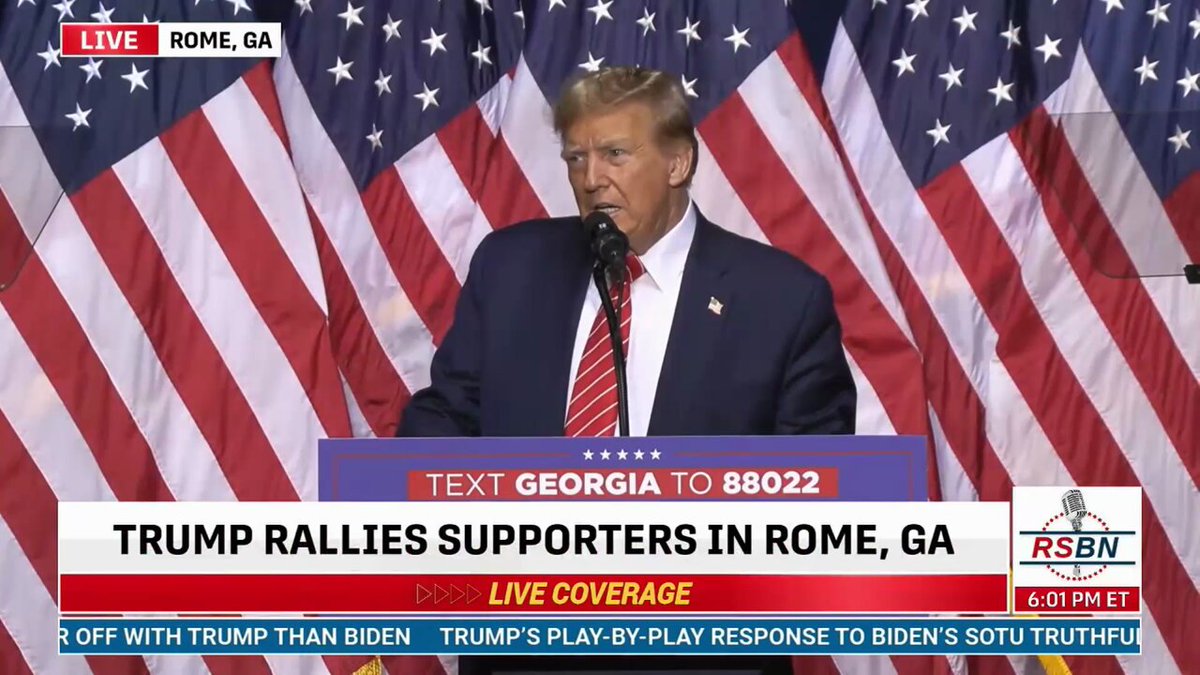In an era where political landscapes shift with the swiftness of a gale, the U.S. Supreme Court has once again proven itself to be the bulwark against arbitrary interpretations of constitutional law.
In a decision that resounds through the halls of justice and into the heart of America, the Supreme Court has decreed that Donald Trump, the indefatigable champion of the people, will remain on the ballot in Colorado.
This ruling, coming amid a cacophony of legal challenges and political maneuvering, is not just a win for Trump but a triumph for democracy itself.
The controversy centered around the “insurrectionist clause” of the 14th Amendment, a post-Civil War provision that was thrust into the limelight by those seeking to derail Trump’s presidential ambitions.
The clause, they argued, disqualified Trump from holding office due to his alleged role in the events of January 6, 2021.
However, the Supreme Court, in its wisdom, recognized the danger of such unilateral interpretations, affirming that no state has the authority to unilaterally disqualify a federal candidate from the ballot.
This decision is monumental, not just in its immediate effect but in its broader implications.
By ruling unanimously that Trump cannot be removed from the ballot and delineating the limits of state power in federal elections, the Supreme Court has safeguarded the sanctity of our electoral process.
The majority opinion, led by Chief Justice John Roberts, clarified that while states may disqualify individuals from holding state office, they lack the constitutional authority to enforce such measures against federal officeholders and candidates, especially for the presidency.
This ruling echoes through the corridors of power, sending a clear message that the presidency, and indeed all federal offices, cannot be manipulated by state-level political machinations.
It is a testament to the foresight of the Founding Fathers, who understood the importance of balancing powers not just among the branches of the federal government but between the federal and state governments as well.
The implications of this decision are far-reaching.
Politically, it reaffirms Trump’s position as the frontrunner for the GOP nomination, a beacon of hope for those who yearn for a return to policies that prioritize America and its citizens.
It also serves as a repudiation of the tactics employed by Democrats and certain Republicans, who have sought to use the legal system as a tool to stifle political opposition.
This ruling underscores the resilience of America’s democratic institutions and the enduring strength of the Constitution.
For the MAGA movement, this victory is emblematic of the enduring appeal of Trump’s vision for America—a vision of prosperity, security, and national pride.
It is a reminder that despite the relentless attacks from the mainstream media, the political establishment, and the tech giants, the spirit of the American people cannot be easily quashed.
This ruling is not just a legal win; it is a moral vindication for Trump and his supporters, who have long argued that the campaign against him was rooted more in political animosity than in genuine legal concerns.
The decision also casts a long shadow over the strategies of Trump’s opponents.
For Democrats, the ruling is a stark reminder of the limitations of their current strategies and may prompt a reevaluation of their approach to the 2024 election.
For the so-called RINOs (Republicans In Name Only), this decision exposes the futility of their efforts to undermine Trump and may force them to reconsider their positions within the GOP.
Moreover, the ruling has significant implications for the mainstream media.
Long accused by Trump supporters of bias and misinformation, the media’s narrative around Trump’s eligibility has been effectively challenged by the highest court in the land.
This may lead to increased skepticism among the public towards media outlets that have been overtly hostile towards Trump and his movement.
In conclusion, the Supreme Court’s decision is a watershed moment in American politics.
It reaffirms the principles upon which the nation was founded: that the rule of law is paramount, that the Constitution is the supreme guide, and that the will of the people cannot be easily dismissed.
For Trump and the MAGA movement, this ruling is not just a victory in a legal battle; it is a rallying cry for the 2024 presidential race, a race that promises to be as much about vindicating a vision for America as it is about winning the highest office in the land.
In this historic moment, the Supreme Court has not only allowed Trump to remain on the ballot; it has reaffirmed the resilience of American democracy.



